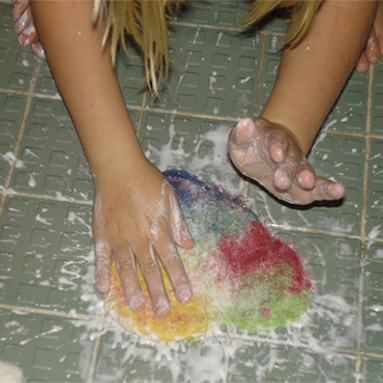From Gender-segregated Subjects to Multi-material Craft: Craft Student Teachers’Views on the Future of the Craft Subject
DOI:
https://doi.org/10.7577/formakademisk.1313Keywords:
craft education, multi-material craft, pedagogical innovation process, gender-segregated craft, teacher education, basic educationAbstract
This paper describes the views of student teachers of craft about the future of craft as a school subject. The study was conducted at the University of Turku, Department of Teacher Education, in Rauma in 2014. The literature review revealed that the subject of craft in Finnish basic education is understood as a dialog between the maker and the materials. However, teaching and learning craft in schools and in teacher education has a strong gender-based tradition. The aim of this study is to investigate student teachers’ understanding of craft as a school subject in the future and their solutions to teaching craft in basic education. The data were collected from essays (N = 20) written by student teachers of craft. The essays were analyzed qualitatively using content analysis. The results showed that the student teachers of craft viewed holistic craft, reflective action readiness, entrepreneurial behaviour, multiple skills, the use of versatile materials, and craft as sources of pleasure and the main solutions for the future of craft as a subject.

Downloads
Additional Files
Published
How to Cite
Issue
Section
License
Authors who publish with this journal agree to the following terms:
- Authors retain copyright and grant the journal right of first publication with the work simultaneously licensed under a Creative Commons Attribution 4.0 License that allows others to share the work with an acknowledgement of the work's authorship and initial publication in this journal.
- Authors are able to enter into separate, additional contractual arrangements for the non-exclusive distribution of the journal's published version of the work (e.g., post it to an institutional repository or publish it in a book), with an acknowledgement of its initial publication in this journal.
- Authors are permitted and encouraged to post their work online (e.g., in institutional repositories or on their website) prior to and during the submission process, as it can lead to productive exchanges, as well as earlier and greater citation of published work (See The Effect of Open Access).
- The author(s) must manage their economic reproduction rights to any third party.
- The journal makes no financial or other compensation for submissions, unless a separate agreement regarding this matter has been made with the author(s).
- The journal is obliged to archive the manuscript (including metadata) in its originally published digital form for at least a suitable amount of time in which the manuscript can be accessed via a long-term archive for digital material, such as in the Norwegian universities’ institutional archives within the framework of the NORA partnership.
The material will be published OpenAccess with a Creative Commons 4.0 License which allows anyone to read, share and adapt the content, even commercially under the licence terms:
This work needs to be appropriately attributed/credited, a link must be provided to the CC-BY 4.0 licence, and changes made need to be indicated in a reasonable manner, but not in any way that suggests that the licensor endorses you or your use.



